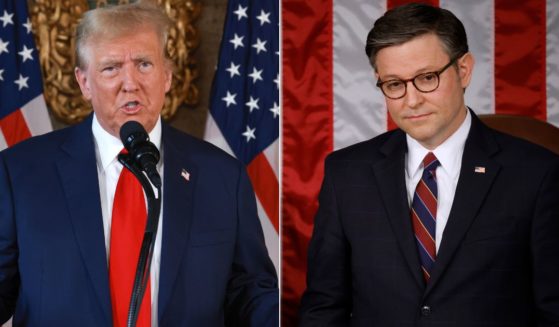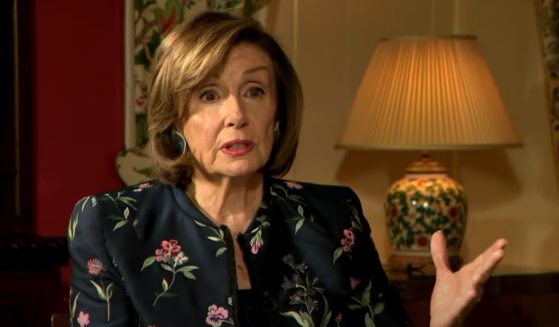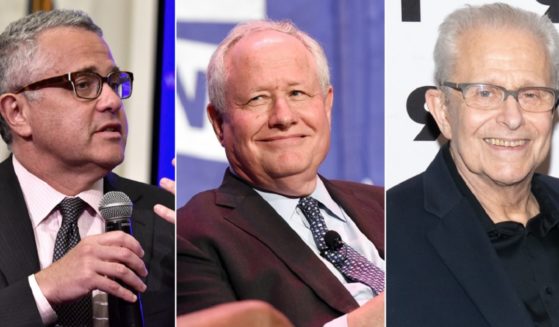The Government Will Become Vastly More Dangerous if Facebook Becomes a Utility
It seemed inevitable that one day I would see a Facebook “whistleblower” like Frances Haugen testifying before Congress.
I was born at the turn of the century, a 2000s baby. We were the first generation to grow up in two worlds, our own one and one that exists on social media. Social media has become central to our lives, for worse or for better. At its best, it allows us to connect with one another and engage in public discourse. At its worst, it drives us further into our ever-deepening rabbit holes, blurs our notion of the truth and divides us.
As Facebook grew, the company’s impact on public discourse began to outweigh that of its competitors. The mammoth company now accounts for 72 percent of visits to social media sites. Throughout American history, companies that grew large and provided a public service, like transportation and electricity, became subject to special regulation from the federal government. Facebook views itself as a company warranting this status.
Haugen, a former Facebook employee, simultaneously argues that Facebook has too much influence and that the best remedy for that is to allow the government to treat it essentially as a public utility, having the ability to regulate and censor “harmful” content.
In reality, treating the tech platform as a public utility would monopolize the power of Facebook by reducing competition among other platforms, grant Facebook and the government the ultimate power to deem undesirable speech “misinformation,” and threaten Fourth Amendment rights by providing intelligence agencies with a centralized database full of private information.
It shouldn’t be surprising that Facebook advocates internet regulations, as it wants to be the only social networking site given a stamp of approval by the state.
Haugen admits that Facebook is a profit-driven network, using algorithms that amplify sensationalized content that she believes is “harming children and weakening democracy.” Giving Facebook status as a public utility would make the company appear safer, potentially bringing in even more users and driving up ad revenue.
The label would also weaken other media platforms’ ability to compete and potentially offer better alternatives to Facebook. Since a government commission would regulate Facebook, the platform would be granted extreme legal protections. The legal burden would make it too expensive for smaller, non-regulated platforms to compete with Facebook.
The answer to dismantling Facebook’s monopoly is not taking out the competitors. The solution is allowing the competitors to pull Facebook users away, which they are already doing. According to a Pew Research study, Facebook was used by roughly 71 percent of American teens in 2014-2015. That dropped to 51 percent in 2018 and continues to fall.
If Haugen’s wishes are granted, the government and Facebook would be able to work in tandem to censor undesirable speech and create a society that looks more Orwellian than democratic.
On its face, Haugen’s argument is very compelling. She argues that Facebook generates profit by promoting unhealthy imagery that targets young people, anything from photoshopped models to anorexia content. Young girls were at the center of her concerns.
Nobody wants teenagers to feel bad about their bodies. Republicans don’t, Democrats don’t and parents definitely don’t. Haugen has not yet provided an outline of how the government might decide to censor this “harmful content.” Would it remove posts that are filtered or photoshopped? That might put a dent in ad revenue.
In reality, Facebook is exploiting body image issues in a greater effort to gain public utility status. As a public utility, the political regime in power would work alongside Facebook to censor content that may counter its narrative — stories that paint certain political actors in a negative light, political ads for opposing candidates, or health information that doesn’t support their agenda.
Previous whistleblowers, less relevant in the news cycle, have already released internal documents allegedly detailing the company’s effort to censor vaccine concerns on a global scale. The policy aimed to “drastically reduce user exposure” to vaccine-hesitant comments as well as to force a “decrease in other engagement of [vaccine-hesitant] comments including create, likes, reports [and] replies.”
Increased government oversight and censorship is the last thing Facebook needs. Media platforms are a whirlwind of ideas and beliefs, and there is no way to ensure that everyone receives accurate information. The responsibility falls on the individual to do their own outside research and make an informed decision. Quieting unpopular opinions only drives more outrage and extremism.
Finally, treating Facebook as a public utility would conveniently provide the government with a central database full of private information.
The Fourth Amendment protects people from unreasonable searches and seizures by the government. Legitimate whistleblowers like Edward Snowden have already revealed how the government has crippled this constitutional promise by spying on U.S citizens without a warrant.
If Facebook were to be considered a public utility, the government would no longer have to go through the hassle of breaking into companies’ firewalls. Facebook would provide intelligence agencies with a pre-existing database. And this time, the information would be even more expansive — everything from a person’s favorite lunch spot to where their child goes to school.
Facebook might not be listening to conversations through your phone, but it knows who you are interacting with and when. The platform keeps a record of what files or audio messages you are sending, and it has access to all the contacts on your phone. It even monitors your online browsing to serve personalized ad offerings.
Countries that allow the government to regulate the media are violating human rights and persecuting minorities. In China, state-regulated programs evaluate personal media usage to assign citizens social credit scores. In Russia, the government requires companies that possess personnel data to store the information on local servers. The United States could be next.
Haugen’s argument that Facebook has too much influence is antithetical to her argument that the government should regulate Facebook. The power of the media platform would only expand under its new public utility status. She has not sacrificed her position to curb Facebook’s influence, but rather to grow it under the protection of the government.
The views expressed in this opinion article are those of their author and are not necessarily either shared or endorsed by the owners of this website. If you are interested in contributing an Op-Ed to The Western Journal, you can learn about our submission guidelines and process here.
Truth and Accuracy
We are committed to truth and accuracy in all of our journalism. Read our editorial standards.












